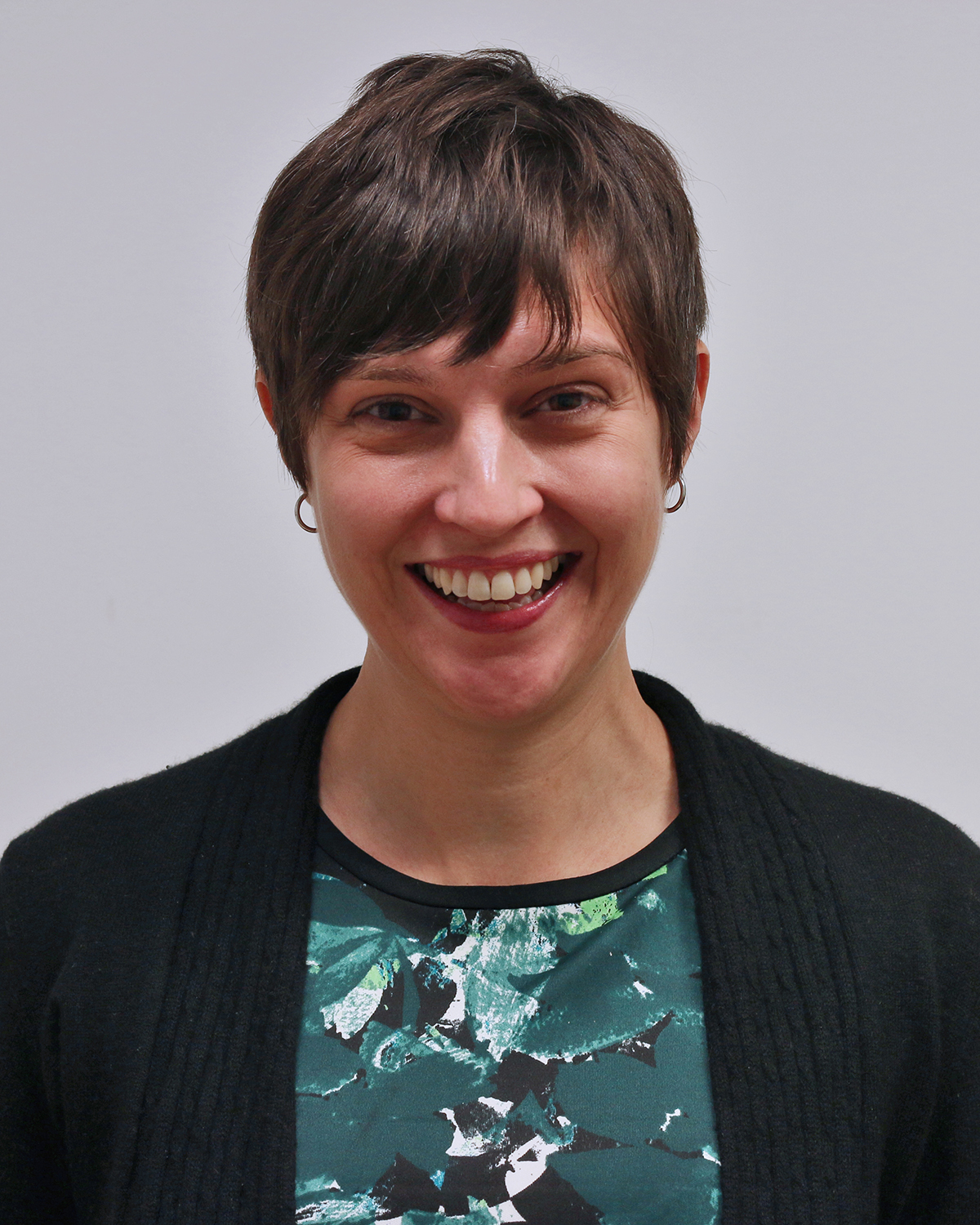Keynotes
Katie Shilton
 Practicing (whose?) values: requirements engineering as a catalyst for technology justice. Requirements engineering (RE) is a critical site for technology ethics. Technology ethics researchers have long advocated that ethical concerns be central to early design processes, and requirements engineering provides methods and processes for such reflection. RE has already begun exploring ways that social values like privacy, accessibility, and fairness can become technical requirements. Methods have been proposed to support and systematize ethical design. But these methods face steep challenges on the road to widespread adoption. Agile methodologies and technical cultures where ethical deliberation takes a backseat to production make values-oriented design difficult. And even after decades of debate, practitioners of values-oriented design struggle with the fundamental problem of whose values should be built into technologies which are meant to be flexible, interoperable, and global.
Practicing (whose?) values: requirements engineering as a catalyst for technology justice. Requirements engineering (RE) is a critical site for technology ethics. Technology ethics researchers have long advocated that ethical concerns be central to early design processes, and requirements engineering provides methods and processes for such reflection. RE has already begun exploring ways that social values like privacy, accessibility, and fairness can become technical requirements. Methods have been proposed to support and systematize ethical design. But these methods face steep challenges on the road to widespread adoption. Agile methodologies and technical cultures where ethical deliberation takes a backseat to production make values-oriented design difficult. And even after decades of debate, practitioners of values-oriented design struggle with the fundamental problem of whose values should be built into technologies which are meant to be flexible, interoperable, and global.
This talk will suggest that reframing values and ethics as explicitly about justice – considerations of power and historical oppressions – helps solve one challenge (whose values) while making the other (adoption in software engineering communities) potentially more difficult. I will then present two contrasting case studies as tools to think with and potential ways forward. The first is from my qualitative work studying independent mobile application developers. My findings suggest that there are practices already embedded in even the most informal software work which can ease the problem of adoption of ethics and justice-centered requirements engineering. The second is the history of a radically different profession: anthropology. Anthropology is a discipline that has openly grappled with power and its place in the world, and I suggest its history provides lessons for how software engineering might make reflections on power more central to development practice.
Katie Shilton is an associate professor in the College of Information Studies at the University of Maryland, College Park. Her research explores ethics and policy for the design of information technologies. She is the PI of the PERVADE project, a multi-campus collaboration focused on big data research ethics. Other projects include developing privacy-sensitive search for email collections; analyzing ethical cultures in computer security research; and building tools to facilitate ethics discussions in mobile application development. Her work has been supported by a Google Faculty Award and multiple awards from the U.S. National Science Foundation. Katie received a B.A. from Oberlin College, a Master of Library and Information Science from UCLA, and a Ph.D. in Information Studies from UCLA.
**Detailed information on talk
Vidya Setlur
 What makes intelligent visual analytics tools really intelligent? Visual analysis helps people see and understand data. Effective visualizations depend on the task at hand and need to be simple, yet meaningful. While data-driven inquiry has become the norm of business practices and decision making, there is a huge untapped market of “data enthusiasts” who aren’t database or computer experts; yet, they are great analytical thinkers and need tools to support their questions. There have been recent advances looking at how AI technologies can assist the analytical workflow ranging from smarter data transformations, automatic visual encodings, to supporting analytical conversation using natural language. Machine learning approaches have shown to be promising for approximating the cues for continuous learning in these systems. With a better understanding as to how users explore data in their flow of analysis, a natural question is - can user behavior be applied as a set of engineering requirements to developing smarter tools? That is, can people doing analysis be supported or even replaced by more intelligent tools? In this talk, I will explore this question.
What makes intelligent visual analytics tools really intelligent? Visual analysis helps people see and understand data. Effective visualizations depend on the task at hand and need to be simple, yet meaningful. While data-driven inquiry has become the norm of business practices and decision making, there is a huge untapped market of “data enthusiasts” who aren’t database or computer experts; yet, they are great analytical thinkers and need tools to support their questions. There have been recent advances looking at how AI technologies can assist the analytical workflow ranging from smarter data transformations, automatic visual encodings, to supporting analytical conversation using natural language. Machine learning approaches have shown to be promising for approximating the cues for continuous learning in these systems. With a better understanding as to how users explore data in their flow of analysis, a natural question is - can user behavior be applied as a set of engineering requirements to developing smarter tools? That is, can people doing analysis be supported or even replaced by more intelligent tools? In this talk, I will explore this question.
Vidya Setlur is a principal research scientist at Tableau. Her area of expertise is in natural language processing and computer graphics. She earned her doctorate in Computer Graphics in 2005 at Northwestern University and loves pushing the boundaries of product innovation through a principled fashion, drawing from both research and engineering. Vidya’s interests lie in developing novel computer algorithms and user interfaces that enhance visual communication and the understanding of user intent through semantics. Her research draws inspiration from information retrieval, computational linguistics, human perception, and cognitive science to help users effectively interact with devices and information in their environment.
**[Detailed information on talk]https://2021.refsq.org/details/refsq-2021-papers/2/What-makes-intelligent-visual-analytics-tools-really-intelligent-
Martin Glinz
 The Challenge(s) of Teaching Requirements Engineering When a new discipline such as Requirements Engineering (RE) emerges and starts spreading, we are confronted with the challenge of teaching it, both by educating students and training professionals in practice. In this keynote, I will start with a historic perspective, looking at the attitudes to Requirements Engineering in the past 50 years and their consequences for teaching RE. The main focus of my talk will be on presenting and analyzing the challenges of teaching RE. Challenges to discuss include the problems of motivation, context, principles vs. methods and tools, process, and real stakeholders. I will also reflect on the consequences of these challenges in terms of both what to teach in RE and how to teach RE – and on what that means for today’s RE education and training.
The Challenge(s) of Teaching Requirements Engineering When a new discipline such as Requirements Engineering (RE) emerges and starts spreading, we are confronted with the challenge of teaching it, both by educating students and training professionals in practice. In this keynote, I will start with a historic perspective, looking at the attitudes to Requirements Engineering in the past 50 years and their consequences for teaching RE. The main focus of my talk will be on presenting and analyzing the challenges of teaching RE. Challenges to discuss include the problems of motivation, context, principles vs. methods and tools, process, and real stakeholders. I will also reflect on the consequences of these challenges in terms of both what to teach in RE and how to teach RE – and on what that means for today’s RE education and training.
Martin Glinz is a full professor emeritus at the University of Zurich (UZH). From 1993 until July 2017, he was a professor of Informatics at UZH’s Department of Informatics. From 2007-2016, he also was the department head. His interests include requirements and software engineering – in particular modeling, validation, quality, and evolution. He received a Dr. rer. nat. in Computer Science from RWTH Aachen University in 1983. Before joining UZH, he worked in industry for ten years where he was active in software and requirements engineering research, development, training, and consulting. He is on editorial boards and program committees of major journals and conferences and served as Program Chair or General chair of RE’06, REFSQ’09, ICSE 2012, and RE’20. He chairs the IREB Council and is a co-author of the IREB CPRE Foundation Level syllabus and handbook.